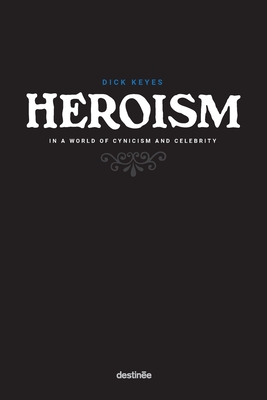Heroism in a World of Cynicism and Celebrity

Heroism in a World of Cynicism and Celebrity
Who is a hero? Start by thinking of three kinds of notable people -- talents, celebrities, and heroes. Talents do something really well. Celebrities are well known, usually for having some talent. Heroes rightly understood, have lived with a moral excellence that is worthy to be emulated.
We find two blocks to taking heroism seriously in our society -- cynicism and trivialization by celebrity. They seem to work in opposite directions. Cynicism deflates and debunks while celebrity inflates and exaggerates. But they actually work well together to discredit heroism. The more cynical you are, the more life seems trivial. The more life seems trivial, the more cynicism seems justified, so why even think about heroes?
The heroes who make it past cynicism and celebrity are not likely to be moral heroes. They are usually talented people, super-achievers from professional sports, entertainment, wealth, and power. For most of us, they are out of reach and we know it. So we have become consumers and daydreamers, skilled in vicarious fandom, psychic hitch-hiking into a heroism of compensation. These heroes do not stretch us toward aspiration, they make us more content with mediocrity. But they also drag us into self-disgust because we feel so poor, dull and ugly compared to the stars. I have approached heroism as a Christian, convinced that we are best understood in the light of our connection with our Creator. As humans, we are each a "glorious ruin" - glory by creation in God's likeness and ruin because we are flawed by sin. Made in his image, we can reflect something of the glory of God. (Think of Maya Angelou's "We come from the creator, each of us trailing wisps of glory.") The desire for heroism is to connect with glory, greatness, or excellence in our life-story. Heroism links your imagination to your future. It also creates two powerful motivations through your imagination -- aspiration and aversion. They tell you what person you want to become and its opposite, what person you want to avoid becoming. Pseudo-heroes do not just go away when we ask them to leave. You have to scrape off false heroes like peeling paint off a house before new paint can stick. The Bible helps us by showing us the false hero as the fool in narratives long and short. In them, the fool is unmasked, exposed not as stupid but as lacking humility before God and neighbor. He or she is revealed as the unhero, a loser, and a jerk. It is dangerous to hang out with one. In the storie
PRP: 147.25 Lei
Acesta este Prețul Recomandat de Producător. Prețul de vânzare al produsului este afișat mai jos.
132.53Lei
132.53Lei
147.25 LeiLivrare in 2-4 saptamani
Descrierea produsului
Who is a hero? Start by thinking of three kinds of notable people -- talents, celebrities, and heroes. Talents do something really well. Celebrities are well known, usually for having some talent. Heroes rightly understood, have lived with a moral excellence that is worthy to be emulated.
We find two blocks to taking heroism seriously in our society -- cynicism and trivialization by celebrity. They seem to work in opposite directions. Cynicism deflates and debunks while celebrity inflates and exaggerates. But they actually work well together to discredit heroism. The more cynical you are, the more life seems trivial. The more life seems trivial, the more cynicism seems justified, so why even think about heroes?
The heroes who make it past cynicism and celebrity are not likely to be moral heroes. They are usually talented people, super-achievers from professional sports, entertainment, wealth, and power. For most of us, they are out of reach and we know it. So we have become consumers and daydreamers, skilled in vicarious fandom, psychic hitch-hiking into a heroism of compensation. These heroes do not stretch us toward aspiration, they make us more content with mediocrity. But they also drag us into self-disgust because we feel so poor, dull and ugly compared to the stars. I have approached heroism as a Christian, convinced that we are best understood in the light of our connection with our Creator. As humans, we are each a "glorious ruin" - glory by creation in God's likeness and ruin because we are flawed by sin. Made in his image, we can reflect something of the glory of God. (Think of Maya Angelou's "We come from the creator, each of us trailing wisps of glory.") The desire for heroism is to connect with glory, greatness, or excellence in our life-story. Heroism links your imagination to your future. It also creates two powerful motivations through your imagination -- aspiration and aversion. They tell you what person you want to become and its opposite, what person you want to avoid becoming. Pseudo-heroes do not just go away when we ask them to leave. You have to scrape off false heroes like peeling paint off a house before new paint can stick. The Bible helps us by showing us the false hero as the fool in narratives long and short. In them, the fool is unmasked, exposed not as stupid but as lacking humility before God and neighbor. He or she is revealed as the unhero, a loser, and a jerk. It is dangerous to hang out with one. In the storie
Detaliile produsului











